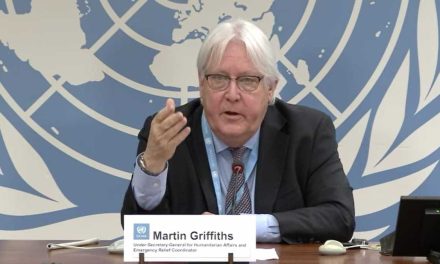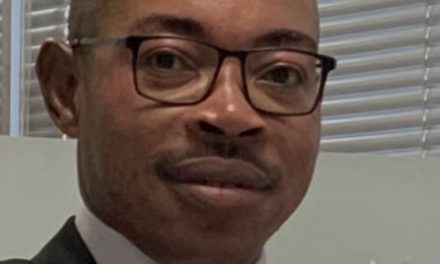
The African security dilemma and sustainable development

By Farai Tinashe Munoriarwa.
Africa is a continent with exceedingly high potential to grow and an immense youth population that is set to grow exponentially in the next coming years. However, the continent is continuously being riddled with multi-dimensional insecurity. African insecurities come in different forms and need to be tackled in diverse manners. For Mother Africa, it’s the lack of pro-activeness that fuels our insecurities worries as a continent and we have attested to this since time and memorial. The African Security Dilemma is furthered purported by the lack of infrastructure and the failure to prioritise the security agenda as we seek to attain the Africa we want and increase our share of the global economy.
The last two years illustrated the need for a multifaceted approach to security especially with regards to the use of the Continental Early Warning System, Intelligence Gathering and Detection, as COVID-19 showed that the African continent and the world large need to intensify their stance on health security. COVID-19 is the tip of the iceberg, as prior to this pandemic Africa had other outbreaks such as Ebola which could have been treated as a learning curve to focus and improve health security.
Among the greatest insecurities faced on the African continent is food insecurity. The lack of food security possesses a catastrophic threat as it affects both the lives and livelihoods of millions of people. The reality is regardless of droughts happening on the continent we as humans have played a vital role in climate change through unsustainable practices that have devastated our ecosystem and environment. Tireless efforts through organisations like World Food Programme and the Food and Agriculture Organisation have eased food insecurity but more can be done to aid these organisations in the fight against food insecurity and it begins with sustainability. Carbon farming is ever great example of sustainable agriculture methods that have minimal effect on the environment.
The biggest threat Africa faces that seems to be ignored is that of Energy Insecurity. Energy security simply put is finding an energy mix (non-renewable, sustainable and renewable energy sources) that can be used to provide energy without causing any harm to the environment through limited to zero carbon emissions. To be sophisticated, energy security is the association between national security and the availability of natural resources for energy consumption. Countries in the Global North have managed to find sustainable energy mixes and this is due to their swift shift to sustainable and renewable energy and the minimal dependency on non-renewable energy.
Africa on the other hand faces challenges as the majority if not all have non-sustainable energy mixes. This is due to the over-dependence on non-renewable energy such as coal which is harmful to the environment. South Africa uses coal for more than 80% of its power generation and is estimated to be the 13th largest carbon emitter in the world, despite being the 33rd largest economy. In addition, another cause is the lack of infrastructure caused by minimal investment into securing sustainable energy. One cannot ignore the disparities of industrialisation between Africa and the rest of the world. This disparity is vital in various aspects ranging from Africa’s share of the global economy, the rate at which Africa as a whole contributes to the digitization and the digital economy and the attainment of the SDGs.
The energy security dilemma in Africa is further purported by the SDGs that were never region-specific but were wholesome in nature. Africa is a continent that highly relies on non-renewable energy, and the introduction of the SDGs in 2015 brought about investment in renewable energy such as solar in Africa as the continent is blessed with 8 months of sunlight. However, delving deep into Asian, European and American energy security, it can be noticed that there is no drastic shift from non-renewable to renewable energy. On the contrary, there is the element of sustainable energy through nuclear energy that has zero carbon emissions but suffers from limited research on what to do with nuclear waste.
Sustainable Energy in the form of nuclear energy has aided the developed world to gradually move and attain their sustainable energy mixes allowing them to be less reliant on non-renewable energy. It has enhanced their advancement into green industrialisation and has seen their progression into renewable energy moving away from sustainable energy. A great example is that of Germany that has in the last decade closed down thermal and nuclear stations in order to focus more on wind energy.
Energy security is an issue that needs to be addressed rapidly especially as we moved into a digital world, it is evident that there is no industrialisation and digitization without energy as the three work in a constant tandem. Africa is home to countries with vast uranium deposits that could be used to secure energy and fuel the attainment of SDGs and a much more industrialised Africa.
The urgent need for energy security in the form of sustainable and renewable energy sources does not just affect development and the environment but politics. Renewable sources like solar provide an equal playing field allowing the democratisation of the energy sector limiting and qualifying issues of corruption and ill governance within the energy sector.
Energy security is needed for productivity both in the manufacturing industry and the education sector. Digital literacy has become a prerequisite and skill needed to propel the livelihoods of the current and future generations to come. Without energy security, we risk limiting the literacy of these generations as they will be insufficiently equipped. An aggressive move from non-renewable energy sources such as coal could demonstrate to countries especially middle-income that decarbonisation and economic growth are not mutually exclusive and can in fact be self-reinforcing.
All the insecurities are detrimental to the lives and livelihood of the African continent as a whole. The present and the future are in need of human security to be placed at the forefront. The underpinning notion that we have time to solve the problems we face as a continent is a façade, there is no time like the present. It is the hope that the recent developments mentioned at COP26 will be fulfilled especially the compulsory framing for developing countries to transition away from fossil fuels and promote the development of less carbon-intensive economies.












































